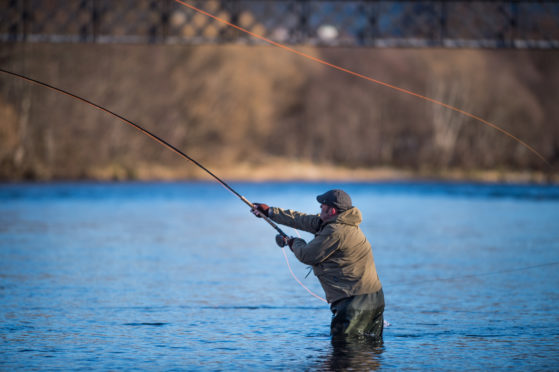Efforts to stop the king of fish from dying out north of the border have been boosted with returns showing catches on one of Scotland’s great salmon rivers have almost doubled.
In its latest briefing, the Spey Fishery Board said its salmon and grilse catch from February to June amounted to 2,011 fish.
The total on the 107-mile river was almost double the 1,080 that were caught for the same period last year.
However the board said it is still below the five and ten-year averages of 2,478 and 2,511 respectively – but “angler effort was noticeably lower in some areas this year and this almost certainly impacted upon the catch”.
“Furthermore, the catch and release rate has remained at 98%, which is a resounding success for the board’s conservation policy and we are grateful to all of our ghillies and anglers for their continued support,” it said.
The sea trout catch for the early part of the season was 640, slightly below the 673 caught for the same period last year and 24% below the five-year and 10-year averages of 843 and 840 respectively.
“Here too, though, anglers have continued to support the board’s conservation policy for sea trout, returning 87% of the fish caught, which is up another 6% on the release rate for this period last year. Thank you again for your continued support,” added the board.
The catches follow a record low year for Scotland last year.
The total reported rod catch – retained and released – of wild salmon and grilse for 2018 was 37,196, just 67% of the previous five-year average and is the lowest since records began in 1952.
The Atlantic Salmon Trust said the official returns of wild salmon caught in Scotland last year makes for “grim reading, for all those that hold this iconic species dear.”
“Whilst the long hot dry summer of 2018 would no doubt have played a role in the low numbers caught the sad news is that fewer salmon are returning to our rivers. This is not just happening in Scotland but for many rivers right around the whole of the Atlantic. As these fish are a very good indicator of the health of our rivers and seas they are telling us that something is terribly wrong,” it said.
